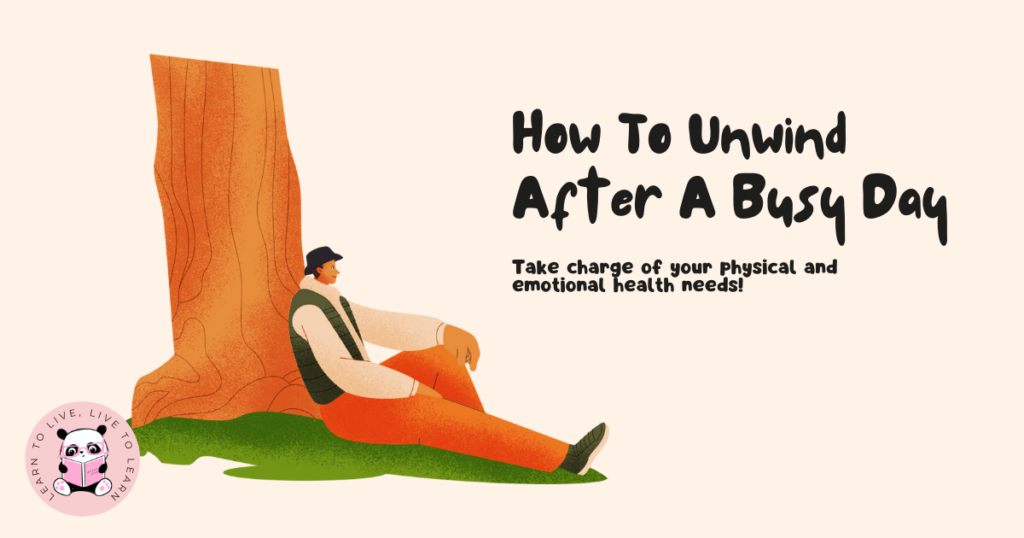Overcome Your Inner Critic And Love Yourself Better
Written by Michelle Ong | July 21, 2024 | Growth, Wellness

Do you tend to be too hard on yourself? Discover mental shifts that can help you love yourself better.
“Loving yourself isn’t vanity. It’s sanity.”
Katrina Mayer
Do you often find yourself battling an inner critic that never seems to rest? You’re not alone. Many of us struggle with self-doubt and harsh self-judgment, making it challenging to appreciate our own worth.
In another post, we explored the three key reasons behind our tendency for self-criticism and better understood why we’re so hard on ourselves. If you have not read that, you can check it out here.
To overcome these habits and learn to love ourselves better, we need to adopt mindset shifts that promote self-compassion and positivity. I’ve put together a list of 7 key mindset shifts you can start right now to transform your inner dialogue, embrace your worth, and love yourself better. Let’s dive into the journey of silencing your inner critic and discovering a kinder, more supportive relationship with yourself.
1. Challenge Your Thoughts
“You are enough just as you are.”
Meghan Markle
Our thoughts shape who we are, influencing our attitudes, actions, and behaviors. So, the first key step you can take right now is to challenge your thoughts. Instead of believing every thought that pops into your head, keep an open mind and consider different perspectives.
For example, if you think you’ve failed at something, see it as a learning opportunity rather than a disaster. Give yourself the chance to try new experiences, like picking up a new hobby or trying a different approach at work.
When someone criticizes you, remember that you control how you respond. Perhaps your boss makes a harsh comment about your work. You can either let it upset you and feel ashamed, or take a step back and assess it. Is there any truth to it? Can you learn from it, or is it unfair?
Challenge your thoughts and remind yourself you don’t have to accept negative opinions as the truth. Use them as opportunities to grow or simply let them go if they’re not helpful.
Another important tip is to stop comparing yourself to society’s arbitrary standards. The only benchmark that matters is your past self. For example, if you ran a mile today, compare it to how fast you ran last month, not to someone else’s speed.
Practicing mindfulness is a simple exercise that can make you more aware of your thoughts and feelings. It allows you to be present in the moment and to look at your thoughts as if they are separate from you, without judgment.
Pay attention to your inner dialogue and question your thoughts. Are they based in reality or just self-doubt? If you think, “I’ll never be good at this,” question if there’s evidence to support that or if it’s just fear talking. Disregard negative thoughts and focus on constructive ones.
Not all negative thoughts are baseless. For instance, if you’re often late for work, it’s important to acknowledge and improve it. But if you think, “I’m terrible at everything,” recognize this as unproductive and let it go.
So, don’t ignore all negative self-talk, but discern which ones are grounded in reality and need attention. Toss baseless negative thoughts that drain your energy into the mental trash bin. Striking a balance between skepticism and constructive thoughts is crucial.
2. Acknowledge Your Successes
The next critical mental shift to make is to acknowledge our efforts and not take them for granted. Pushing yourself too hard can backfire and hinder your progress.
Take time to celebrate your strengths and achievements, no matter how small they may seem. For instance, if you managed to stick to your exercise routine for a week, give yourself a pat on the back!
Recognizing these small victories can boost your confidence and keep you motivated. Affirmations can also reinforce positive thoughts and keep you on track.
Another key part of this process is setting realistic expectations and goals. This doesn’t mean setting the bar so low that it’s no challenge at all, but creating stretch goals that are just beyond your current comfort zone.
For example, if you’re used to walking a mile a day, try pushing it to a mile and a half. Instead of aiming to run a marathon next month when you’ve never run before, start with a 5K.
Setting smaller, realistic goals lowers the barrier to achieving them. This helps build momentum and encourages you to keep striving for more.
On the flip side, setting unattainable goals that are too far from your current situation can demoralize and demotivate you, leading to self-criticism.
So, take a smart approach when crafting goals that allow you to grow constantly while taking care of your mental well-being.
3. Practice Self-Compassion
“Self-compassion is simply giving the same kindness to ourselves that we would give to others.”
Christopher Germer
Third on this list is to practice self-compassion. Treat yourself with the same kindness and understanding you would offer a friend.
If a friend forgot an important appointment, you wouldn’t harshly criticize them. You’d probably tell them it’s okay and that everyone makes mistakes. So, apply this same gentle approach to yourself.
Avoid being overly harsh on yourself for your mistakes or inaction. Recognize that everyone makes mistakes and that imperfection is a part of being human.
Ever heard of the Japanese philosophy of kintsugi? This philosophy teaches us to appreciate that our own flaws and mistakes add color to our lives. They are the experiences that help us learn and grow. So, next time you stumble, remember that these moments are golden opportunities for growth and self-improvement.
But don’t mistake self-compassion for ignoring your flaws or avoiding growth. It’s about acknowledging our humanity and treating ourselves with the same kindness we offer others.
Check out my posts on Zen philosophy to improve mindfulness for self-care and inner peace.
4. Process & Express Your Emotions Healthily
Identifying emotional blind spots is crucial for emotional health. These blind spots are areas where we may not fully understand our feelings or why we react a certain way.
Perhaps you notice yourself getting unusually upset over a small disagreement. It could be a blind spot indicating a deeper emotion you haven’t fully recognized. Learning to process and express emotions constructively is key. Instead of suppressing or ignoring feelings, acknowledge them.
If you feel frustrated after a challenging day at work, take time to reflect on why you feel that way. Expressing these feelings through journaling or talking with a trusted friend can prevent them from building up and causing a bigger issue later on.
By addressing emotional blind spots and practicing healthy emotional expression, you can cultivate resilience and maintain better overall well-being in your daily life. Check out my post on how to better manage your emotions healthily.
5. Reframe Your Perception Of Failure
“You are allowed to be both a masterpiece and a work in progress simultaneously.”
Sophia Bush
Whether we like it or not, failures are necessary steps before we can achieve success.
Imagine if every time you tried to ride a bike, you fell and decided to never try again—you’d never learn to ride. The same principle applies to all areas of life. Just because you fail once and let that stop you from trying again, you’ll never succeed.
It’s important to get our relationship with failure right. View mistakes and setbacks as opportunities to learn and grow, rather than as reasons to criticize yourself.
For example, if you didn’t get the job you wanted, instead of beating yourself up, think about what you can improve for the next interview. This mindset shift will help you see failures not as roadblocks but as stepping stones to success.
6. Set Aside Time To Self-Reflect
Keeping a thought diary can be a powerful tool for self-reflection. Take the time to jot down your thoughts and ask yourself why you felt or are feeling a certain way.
Be honest. Own your emotions—don’t deny them. If you felt anxious after a meeting, write down why. Was it because you felt unprepared or because you feared judgment? Process your feelings by asking why and be brave enough to seek answers. Drill down to the belief system that gave rise to such feelings.
If you constantly worry about failing, ask yourself what beliefs underpin this fear. Are they rational? Are you being overly harsh on yourself for no good reason? This is an opportunity to examine and assess whether your response is warranted or if you need to adjust your belief system and values.
Decide on the standard you use to measure a situation. Acknowledge and take responsibility where it’s due. This is how you learn and grow.
If you made a mistake at work, instead of beating yourself up, recognize what went wrong and how you can improve. Get comfortable with discomfort. While being overly harsh is bad, being overly lenient on yourself when you are in the wrong is equally harmful. It’s about finding and striking a balance.
7. Reach Out For Support When Needed

The last mental shift on this list is not to be too stubborn to seek support because you perceive it as a sign of weakness. Not reaching out for help when you need it is self-sabotage.
So, don’t hesitate to seek help. Whether it’s from supportive friends who can lift your spirits and encourage self-compassion, or from a therapist or counselor who can provide professional guidance. Especially if you’re feeling overwhelmed and stressed, talking to a counselor can offer valuable strategies to manage your emotions and build resilience.
Another helpful tip when faced with challenges is to think about how a role model or someone you admire might approach it. For instance, if you’re unsure how to handle a tough decision at work, consider how your role model would prioritize teamwork or clear communication.
These strategies can empower you to navigate difficult times with more confidence and kindness toward yourself, fostering a healthier mindset and more positive outcomes in daily life.
Embracing Self-Compassion: The Journey Forward
“You, yourself, as much as anybody in the entire universe, deserve your love and affection.” – Buddha
Recognizing and overcoming our tendency to be self-critical is a journey that requires patience and practice. Embrace the journey of self-love and remember that you are deserving of kindness and success. Believe in your own potential! By doing so, you’ll not only improve your relationship with yourself but also unlock a more fulfilling and joyful life.
Like what you are reading? Pin & share this post with your family and friends! And follow me on Pinterest for more daily inspiration.


